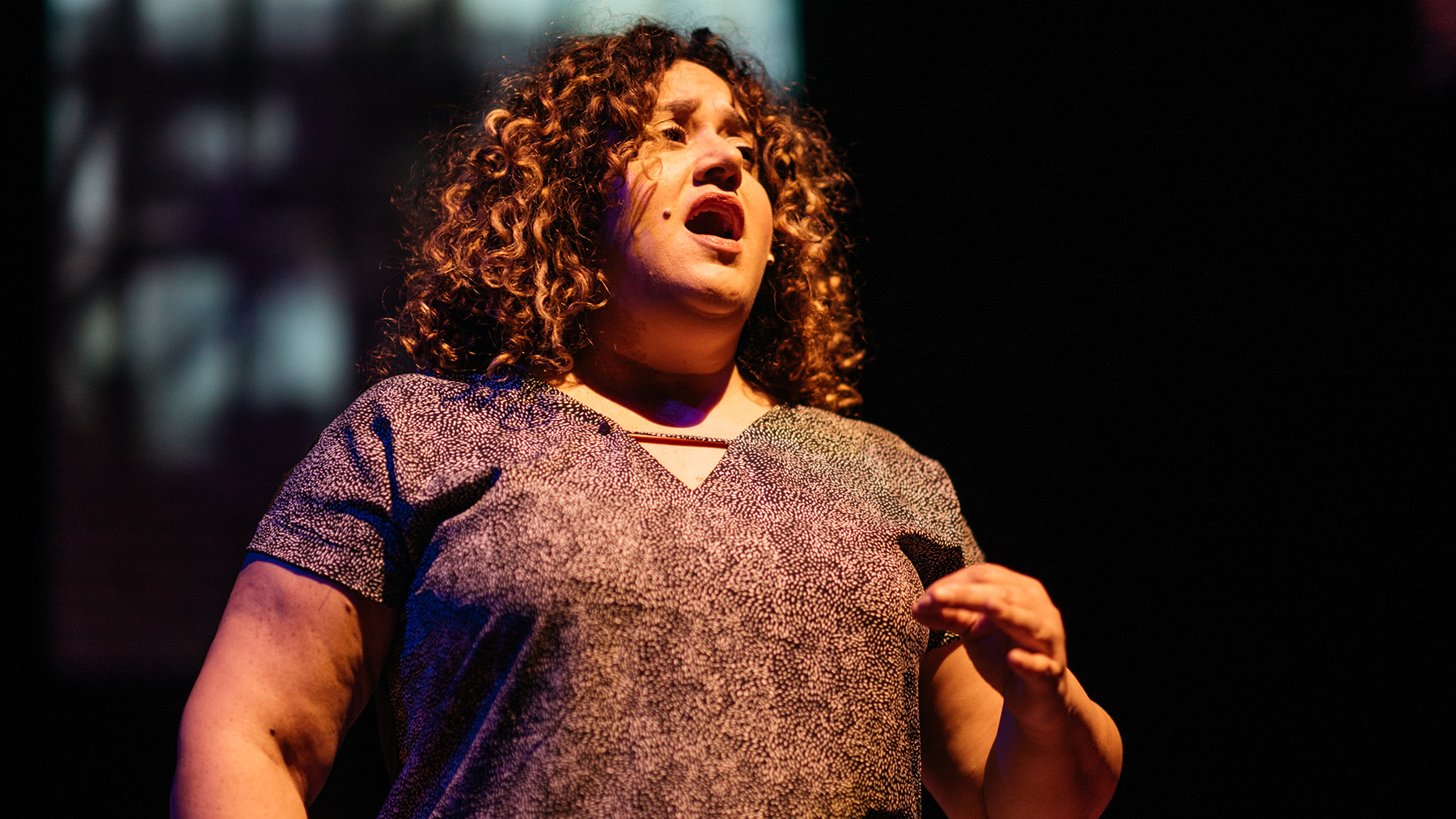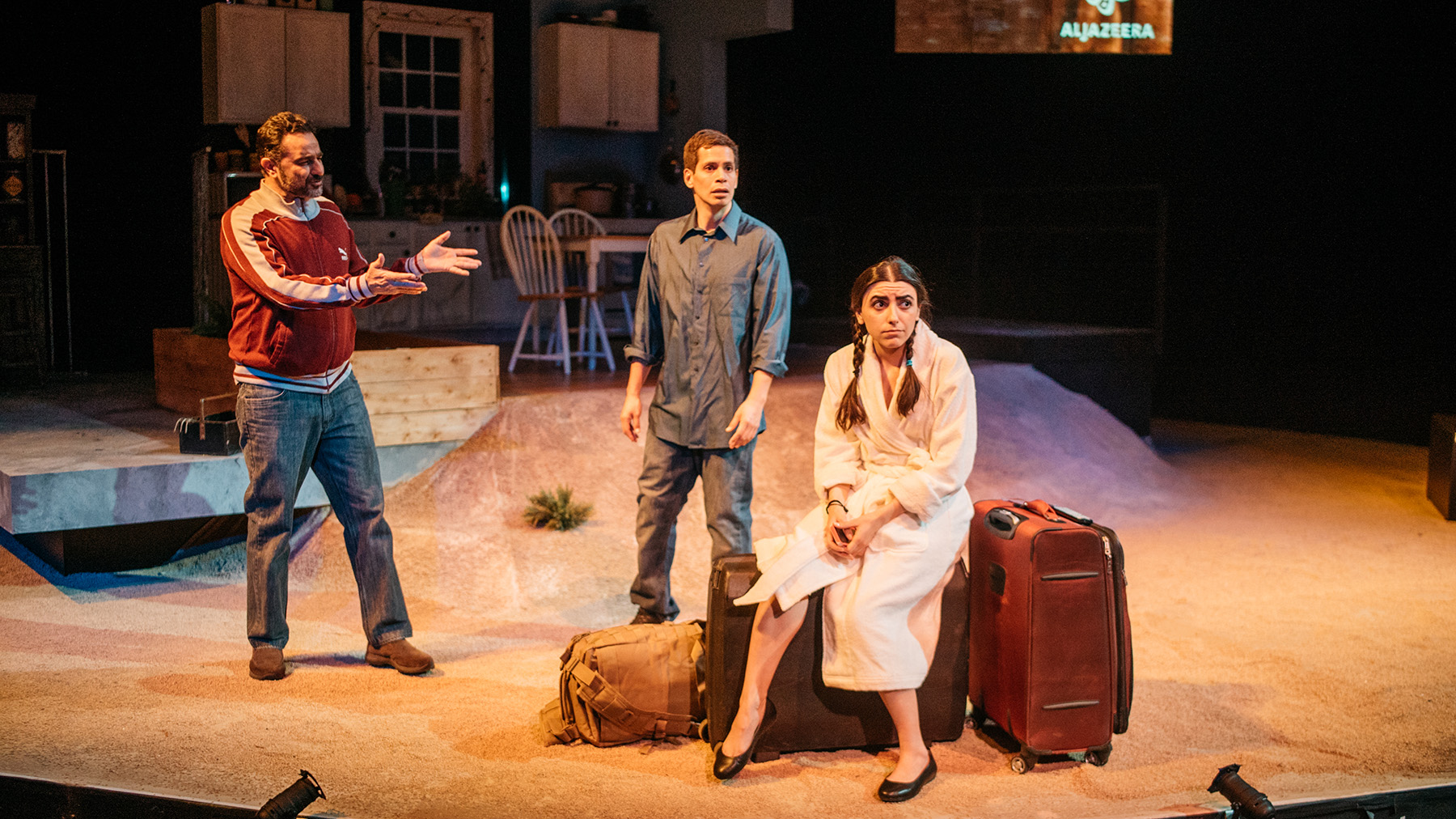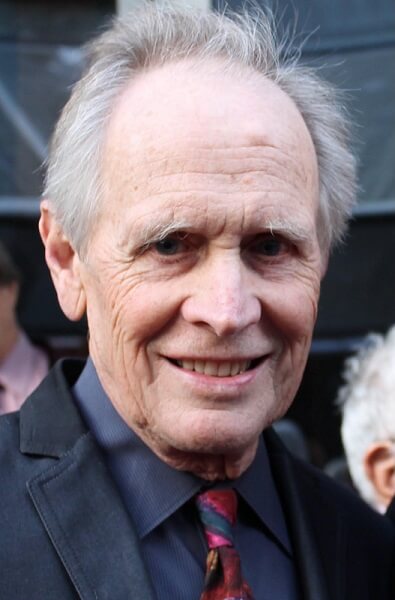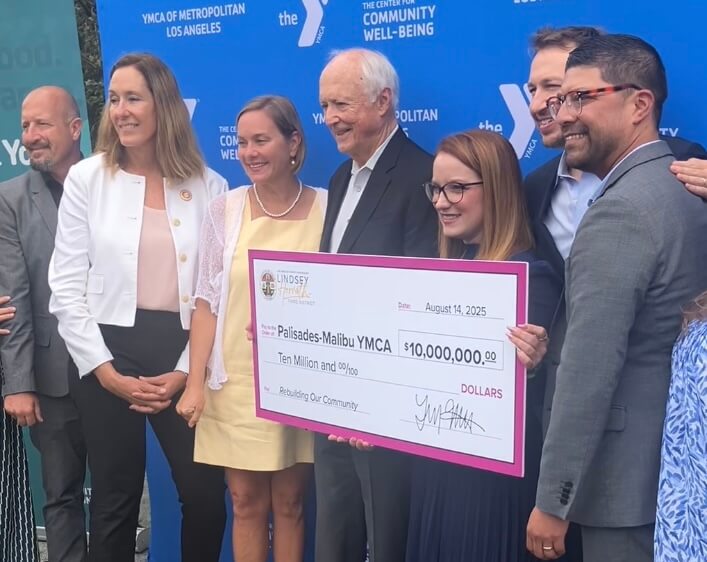By Laurel Busby
Staff Writer
At its core, “The Happiest Song Plays Last” is a tale of the often convoluted path that healing takes.
The final play in a trilogy that includes Pulitzer-prize winner, “Water by the Spoonful,” “The Happiest Song Plays Last” contains hope, tender moments, some humor, and also sadness. The piece also brings the trilogy, originally inspired by an Iraq War veteran, to a warm finale with an inspired production by the Latino Theater Company at the Los Angeles Theatre Center in downtown Los Angeles.
Set to Puerto Rican folk guitar music, played mellifluously by Nelson González, the play, which was written five years ago by Quiara Alegría Hudes, brings to a close the story of the Puerto Rican-American Iraqi war veteran based on Hudes’ cousin, whose story began with “Elliot, A Soldier’s Fugue.”

Photo by Gio Solis of Bracero.la
In this final play, Elliot (Peter Pasco), a vibrant, up-and-coming actor, has won a role in an independent film about the war that has employed a struggling Iraqi immigrant to Jordan, Ali (Kamal Maryati), as it Iraqi expert. The two become friends, but also learn they were recently enemies—fighting on opposite sides during the war.
Meanwhile, Shar (Vaneh Assadourian), a one-quarter Egyptian young woman who grew up in Beverly Hills, also befriends the two. As the trio gets to know each other, Elliot’s post-traumatic stress disorder occasionally comes to the fore, manifested by an Iraqi passport that he is aching to give away.
A world away in Philadelphia, his cousin Yaz (Elisa Bocanegra) has taken on the role of mother to her ailing neighborhood, personified by Lefty (John Seda-Pitre), a mentally ill homeless man who relies on her. She also is falling in love with a married neighbor, Agustin (Al Rodrigo), while keeping in touch with Elliot via text messages and video conference calls.
As the play progresses, pain arises, but the pain is partly an outgrowth of Elliot’s effort to heal, a need that emerged soon after he signed up for the Marines years earlier, taking on the family’s tradition of military service. Yaz has her own crises that also intertwine with Elliot’s in unexpected ways.

Photo by Gio Solis of Bracero.laVaneh Assadourian
Throughout, “The Happiest Song Plays Last” as directed by Edward Torres has a glowing soul that uses its characters’ stories to illuminate the differences and similarities that can unite rather than divide people. The plight of immigrants in a piece written a few years before the current political fixation on immigrants is warmly embraced in a way that creates connection. The folksy music lifts the play so that it soars from the beginning.
The actors touching performances brought tears to the eyes of many in the audience, but also left lead Pasco in tears as he came to the stage still moved by the piece. A fitting end to the trilogy created with heart and insight, “The Happiest Song Plays Last” is more than worth the effort to go downtown for both viewers of the previous two plays and newbies to Hudes’ work.
“Elliot, A Soldier’s Fugue” recently closed at the Kirk Douglas Theater, while “Water by the Spoonful” will play through March 11 at the Mark Taper Forum (See associated reviews). “The Happiest Song Plays Last” plays through March 19, and Los Angeles is the first city to host all three plays at the same time.
Call (866) 811-411 for tickets ($24-$52) or visit thelatc.org.


























You must be logged in to post a comment.